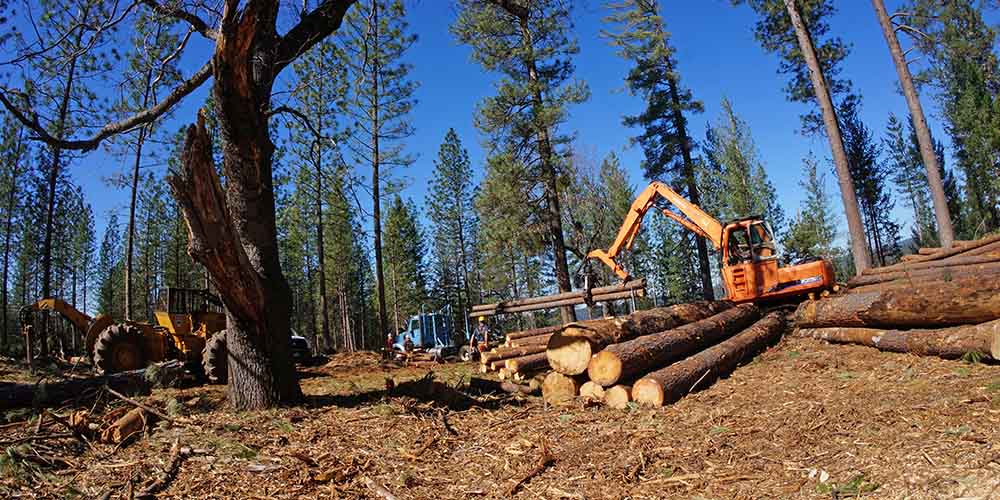
(Photo: Monte Kawahara, BLM)
With the threat of wildfires bearing down, the California Forward (CA FWD) Action Fund is pressing state lawmakers to continue investing sufficient resources and policy strategies to reduce risks to people, communities and landscapes.
In a letter delivered Monday to key state leaders, Micah Weinberg, president and director of CA FWD Action Fund, the advocacy arm of CA FWD, urged key legislators to allocate a minimum of $1 billion annually for at least the next two years to wildfire and forest resilience work to help ensure a safer, healthier state for all Californians. The recommendation emphasized the need for developing forest products industries that can make use of excess woody biomass, reduce fire risks, create healthier forests, capture carbon and generate rural economic activity.
The recommendation was supported by many members of the California Stewardship Network, an alliance of regional leaders working to deliver innovative regional solutions to challenges facing the state. CA FWD and the California Stewardship Network are committed to triple bottom line solutions that simultaneously advance equity, environmental sustainability and economic growth.
The Legislature and governor made historic investments last year totaling $1.5 billion to increase wildfire and forest resilience work. As the letter noted, it is critical to continue sustaining those investments in coming years for proactive work to reduce wildfire risks. The work involves ecologically sound actions including thinning, prescribed fire and cultural burning, and vegetation management on a long-term basis.
Governor Newsom’s proposed budget for 2022-23 in January suggested $1.2 billion over a two-year span for wildfire and forest resilience work. But many have called for a higher minimal level of $1 billion annually for at least two years and beyond for such work.
For example, last month, a coalition of tribal, environmental justice, climate justice, local government, public health, and environmental and economic sustainability organizations issued this recommendation to state lawmakers. Among those working on and endorsing this recommendation were Pacific Forest Trust, Resources Legacy Fund, Cultural Fire Management Council, Central Coast Alliance United for a Sustainable Economy (CAUSE), Hispanic Access Foundation, California Environmental Voters and California Environmental Voters Education Fund, California Cattlemen’s Association, Leadership Counsel for Justice and Accountability, and the CA FWD Action Fund.
The required wildfire and forest resilience work is not only costly, but difficult because of regulatory, workforce and other challenges. During the 2021 Economic Summit, the Empowering Resilient and Productive Landscapes work group identified the need to build on the state’s initial investments to ultimately reach the $3 billion to $5 billion that will be required annually, with a focus on developing the workforce, infrastructure, community capacity, partnerships and regulatory environment needed to address the size and scale of the crisis.
As part of this work, the Summit’s collaborative processes have identified the need to develop and support industries that can convert the excess and dangerous woody biomass in California’s forests into useful products such as liquid fuels, energy, bioplastics, cellulosic nanofibers and wood manufacturing products. The Action Fund’s recommendation letter notes that the “potential wins are multiple, including reducing wildfire risks, improving the health of forested lands and upper watersheds, producing more water, enhancing wildlife habitat, creating jobs and enhancing rural economic resiliency.”
According to Weinberg, it will take not only adequate funding streams, but also strategic policy solutions and cross-sector partnerships to advance solutions.
“It’s going to take everyone working together – government at all levels, the private sector, academic and economic experts, and regional and local implementers – to get in front of this crisis,” he said.

